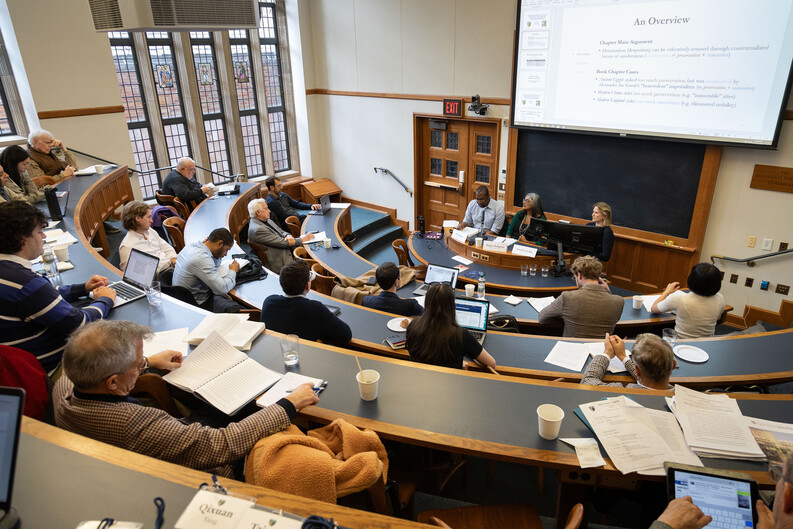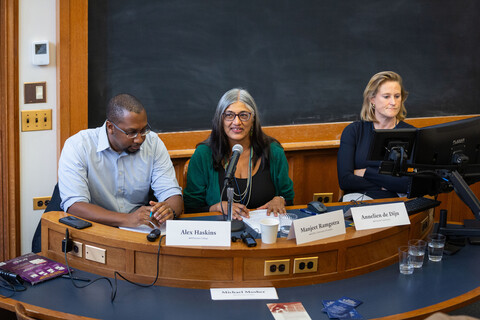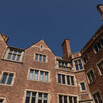Conference Assesses Montesquieu’s Legacy

A recent conference brought together scholars from around the world to rethink Montesquieu’s legacy in light of his engagement with non-Western regimes.
The conference, titled “Montesquieu's Shadow,” was held Nov. 10–11, 2023 at the Law School and organized by Chancellor Kent Professor of Law and History Samuel Moyn, Kate Yoon ’24, and Mark Firmani ’23.
Montesquieu is regarded as the source of some of the most important ideas in law and as one of the most important intellectual influences that shaped the writing of The Federalist Papers, a touchstone for originalist interpretations of the U.S. Constitution.
Yoon and Firmani noticed that they had each thought about Montesquieu’s legacy in their research, but from different disciplines. Yoon studies political theory and Firmani focuses on English and cultural studies.
“We noticed that Montesquieu would receive passing mention in law school classes, but was rarely discussed in depth,” Yoon said. “We wanted to highlight aspects of Montesquieu’s ideas that we thought didn’t get as much attention but still loomed over the study of law.”
Montesquieu’s Spirit of the Laws systematically compares different regimes — not only European ones from his day, but also regimes across history and across the world. He developed a way of categorizing regime types into what he called monarchies, republics, and despotic governments. Montesquieu generally associated despotic government with the climate and culture of countries outside the West, Yoon said.
“This idea — that non-Western governments tend to be authoritarian — persists today, and we wanted to trace it to its origins, back to a person who is also foundational to the study of law and legal theory,” she said.

Speakers prepared papers and presentations that broadly related to Montesquieu’s engagement with non-Western regimes. Themes discussed included Montesquieu’s relationship to empire and his views on whether moderation and liberty were possible outside the West.
We think that his legacy in the law reaches far beyond the concept of the separation of powers,” Yoon said.
Montesquieu was influential in the development of the idea that different laws, constitutions, and political systems were suited to different contexts, she said.
Montesquieu’s influence can also be seen today in debates about whether free trade leads to democracy and peace. Montesquieu’s concept of doux commerce theorizes that commerce civilizes people and nations and is associated with the idea that commerce leads to peace and harmony.
“We hope that we were able to create a space in the law school to think humanistically and to think about how the law is shaped by texts and ideas that we rarely discuss directly in law school,” Yoon said.
The conference was hosted under the auspices of the Program in the Foundations of American Legal Thought at Yale Law School and funded by the Oscar M. Ruebhausen Fund.


